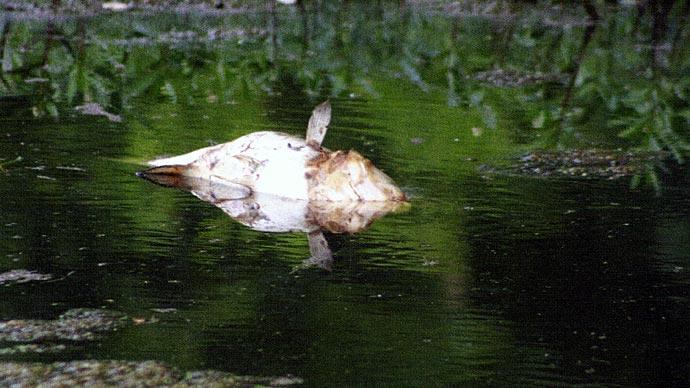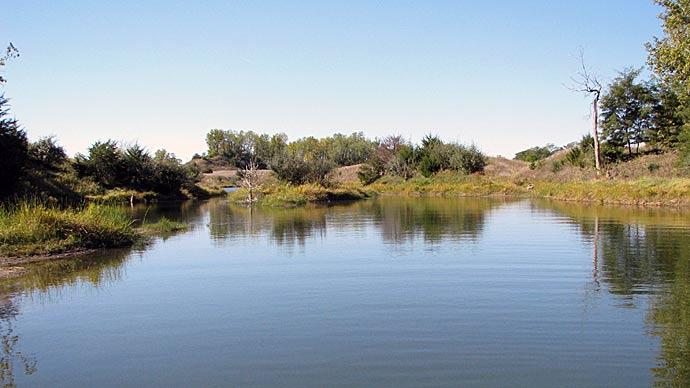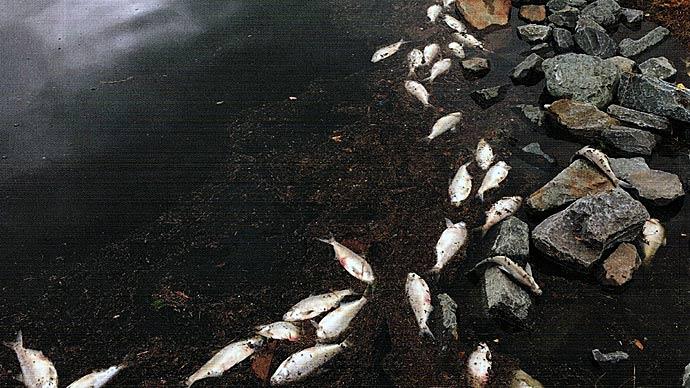
Boy, when July and August rolls around, my heart skips a little bit. Invariably, the phone at Pond Boss world headquarters will ring and crocodile-sized tears will be streaming from the ear piece. "My fish died...someone poisoned them!"
No doubt there will be a fish kill somewhere, somehow, but it's usually the pond owner who did it, not someone with a bucket of some kind of lethal magic dust.
When you are managing mini-ponds, always remember that the entire process starts with water. It's the medium, the home, the septic tank for all things living in it.
While water has a magical way of cleansing itself when it moves and comes into contact with air, you and I need to always remember those processes can accelerate almost overnight in the hottest part of the summer.
I'll always remember the advice of one sage fish farmer, back in 1980. Bus Hartley, from Kingman, Kansas (whose address was P.O. Box 1), said, "Learn to read the water."
I had no idea what he was talking about.
How do you "read the water"?
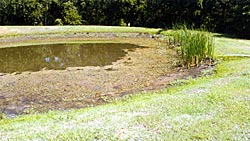
What he meant was that the water would change color, change smells and the fish would behave differently.
Plankton blooms can mature and crash in a matter of hours, followed by rapid growth of a new bloom...especially planktonic or blue green algae.. .or rooted aquatic plants that we don't necessarily want.
Lesson? Nature won't allow nutrients to go unused...whether in plants or sitting on the pond bottom, consuming oxygen.
He cautioned me to be aware of how many fish we tried to carry and how much food we presented. We learned that the fish stop feeding as the water quality deteriorates to the point where fish can die.
If we offered feed and the fish didn't accept as they normally did, we knew we were in for water quality issues. For us, we could exchange fresh water. I still can, because we have a water well. If you don't have an extra source of water, be prepared to deal with water quality issues. That's why we aerate our ponds in today's world. Consider aeration. There are a number of companies who advertise in these pages who are quality people. Call and speak with them. Then, do exactly what they say to do, especially once a system is in place.
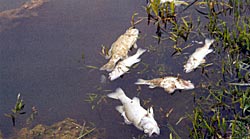
What else does the hottest part of summer do for, or to, a mini-pond?
Vegetation. Plants can grow beyond your wildest expectations. Think of duckweed as one of those plants. Duckweed reproduces every 48 hours. Do the math on that exponential function and you'll quickly see how a mini-pond can look similar to a golf green in a matter of weeks. Don't be tempted to kill too much of your plant life too fast in the summer. Disaster looms if you do.
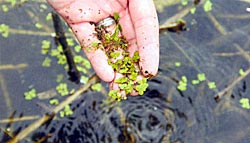
If you have warm water fish in your mini- pond, remember this...they are not HOT water fish. Their metabolism rates slow down when the water is hot. Different fish have different requirements in the warmest waters. Learn those differences. Bluegill may abound while largemouth bass become lethargic.
Here's the bottom line of hot summer temperatures and your mini-pond. Water quality can rapidly deteriorate. Many species of plants can grow fast. Fish tend to metabolically slow down in the hottest part of the summer.
If you know these facts, you can become more proactive with your management strategies. Protect the water.
Do what that wise, old mentor from Kansas taught that young, impressionable biologist.
"Read the water."
Reprinted with permission from Pond Boss Magazine

